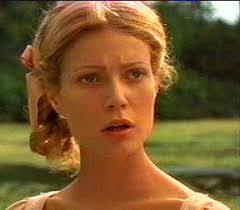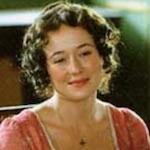Jane Austen: Family Therapist?
by Patrice Sarath 
One of the joys of re-reading Jane Austen’s novels is finding something new each time, bringing with it a deeper understanding of her characters and the society in which they live.
Although Austen is known as a romance writer (and, I would argue, the inventor of modern romance structure), I find her illustration of family dynamics to be the most appealing aspect of her work, and the reason she has fans around the world, across time and culture. She invites us into her life and times, and we recognize ourselves and our families in her characters.
Sometimes a re-read lets me see something I’ve missed the dozens of reads before. For instance, in Pride & Prejudice, when Jane catches cold and has to stay overnight at Netherfield, I had read the book countless times before it occurred to me that this wasn’t a 'Regency thing'. It was just as embarrassing for Jane as if it had happened to someone in the 21st century. Mrs. Bennet’s brazenness in engineering the whole thing became even worse when I looked at it from that standpoint. Can you imagine — going to a stranger’s house for tea and then having to stay overnight for days? And the doctor has to come? Poor Jane! Similarly, imagine my delight when I caught Elizabeth rolling her eyes at Mary’s pontificating:
Then, perceiving in Elizabeth no inclination of replying, she added, “Unhappy as the event must be for Lydia, we may draw from it this useful lesson: that loss of virtue in a female is irretrievable; that one false step involves her in endless ruin; that her reputation is no less brittle than it is beautiful; and that she cannot be too much guarded in her behaviour towards the undeserving of the other sex.” Elizabeth lifted up her eyes in amazement, but was too much oppressed to make any reply. Mary, however, continued to console herself with such kind of moral extractions from the evil before them.
Persuasion is chock-full of her keen understanding of family dynamics.
Just read this excerpt:
Mary's declaration was, "I hate sending the children to the Great House, though their grandmamma is always wanting to see them, for she humours and indulges them to such a degree, and gives them so much trash and sweet things, that they are sure to come back sick and cross for the rest of the day." And Mrs Musgrove took the first opportunity of being alone with Anne, to say, "Oh! Miss Anne, I cannot help wishing Mrs Charles had a little of your method with those children… I believe Mrs Charles is not quite pleased with my not inviting them oftener; but you know it is very bad to have children with one that one is obligated to be checking every moment; "don't do this," and "don't do that;" or that one can only keep in tolerable order by more cake than is good for them."
Mothers-in-law and daughters-in-law, arguing over how to raise the children since — forever. I also love this description of Charles Musgrove, towards the end of the book:
The visitors took their leave; and Charles, having civilly seen them off, and then made a face at them, and abused them for coming—
Oops - guilty as charged! By focusing on romance, the movie and television adaptations do Austen’s books a disservice. Yes, I love the Amanda Root and Ciaran Hinds Persuasion and the Emma Thompson Sense and Sensibility, and both the Keira Knightley Pride and Prejudice and the Colin Firth miniseries, but none of the adaptations (with the exception of Persuasion) really get at the depth of the novels.
Mansfield Park has been particularly ill-used. Mansfield Park isn’t a romance, so attempts to pigeonhole it as such are usually a disaster. Instead, it is a sad, funny, difficult novel about family failure and dislocation. Poor priggish Fanny goes home again, only to discover that she doesn’t belong with her first family any more than she belongs with the Bertrams. There are too many examples to quote, but two come to mind — everyone shouting the same information whenever they enter the room, and a quarrel between two sisters over a silver knife. The former is practically a sitcom bit. The latter is just plain sibling rivalry.
Austen’s depiction of Fanny Price’s poor, loud, rowdy Portsmouth family is spot on. People quarrel and shout, fathers have no authority in their own home, mothers can’t control their daughters, everyone is loud and rude — it’s funny, and, well, human. We think of Austen as being calm, cool, a cerebral wit. No one can write about dysfunctional family with that level of familiarity and not have lived it. Reading about Fanny Price gives us insight into Jane Austen. I highly recommend reading Mansfield Park for its keen insights into families. It is quite funny - although, admittedly, it’s a hard slog to get to the funny bits. Still, well worth the reward.
Emma is Austen’s masterpiece, and I love it for how it portrays parenting and family life. That’s one thing that Austen adaptations don’t really show: the presence of small children in her books. They are everywhere, and more than just plot devices, they are living, breathing characters. Emma’s brother-in-law tells her:
Well, Emma, I do not believe I have any thing more to say about the boys; but you have your sister’s letter, and every thing is down at full length there we may be sure. My charge would be much more concise than her’s, and probably not much in the same spirit; all that I have to recommend being comprised in, do not spoil them, and do not physic them.
Anyone who has every baby-sat has received the same contradictory messages from the parents. The Watsons, the unfinished novel, has one of the sweetest passages with a little boy who loves to dance, and Emma Watson taking pity on him and offering to dance with him. I love this. I love how this boy is given his own arc and motivation, and I can tell Austen knew little boys just like this one.
If the poor little boy’s face had in its happiness been interesting to Emma, it was infinitely more so under this sudden reverse;—he stood the picture of disappointment, with crimson’d cheeks, quivering lips, and eyes bent on the floor. His mother, stifling her own mortification, tried to sooth his, with the prospect of Miss Osborne’s second promise;—but tho’ he contrived to utter with an effort of Boyish Bravery ‘Oh! I do not mind it’—it was very evident by the unceasing agitation of his features that he minded it as much as ever.—Emma did not think, or reflect;—she felt and acted. ‘I shall be very happy to dance with you Sir, if you like it,’ said she, holding out her hand with the most unaffected good humour.—The Boy in one moment restored to all his first delight—looked joyfully at his Mother and stepping forwards with an honest and simple Thank you Ma’am was instantly ready to attend his new acquaintance.
Oh my goodness, she calls him 'Sir'! It just makes me happy to read it. I have not forgotten Northanger Abbey. Northanger Abbey is a YA novel as much as it is a send-up of the lurid Gothic novels that girls were reading at the time. Catherine has little brothers and sisters; she still plays with them, and she’s very young and naïve, even more than most sixteen or seventeen year olds. It is very interesting to see how motherhood is portrayed in Northanger Abbey. Mrs. Moreland is busy yet calm, loving yet clear-eyed about her daughter’s youth and prospects, and pretty laid back about Catherine’s adventure. When she learned that Catherine had to take the stage coach by herself to get home, she praises her daughter for her good sense, while at the same time, she knows that it was a pretty scary thing to do. She’s rightly doubtful about Henry Tilney’s proposal to Catherine, and I have to admit, so am I. But then again, I’m a mother myself, and the strength of Austen’s writing is that I can recognize the common elements of motherhood in her work. I know there is a lot more to Austen than what I’ve described here, and I could talk about my favorite bits all day if I had the chance. I love that each re-read deepens my understanding and appreciation of my favorite author. What are your examples of hidden Austen gems? Let me know in the comments. Happy (re)reading!
Patrice Sarath is the author of the Pride & Prejudice sequel The Unexpected Miss Bennet about everyone’s favorite awkward sister, Mary Bennet, and the Austen-inspired novel The Sisters Mederos. Find out more about her work at www.patricesarath.com



1 comment
[…] Jane Austen: Family Therapist? – Jane Austen Centre […]
Jane Austen and the Bronte sisters links for August 5, 2018 | Excessively Diverting
Leave a comment
This site is protected by hCaptcha and the hCaptcha Privacy Policy and Terms of Service apply.